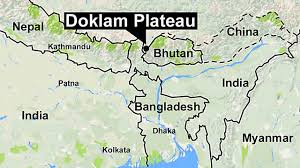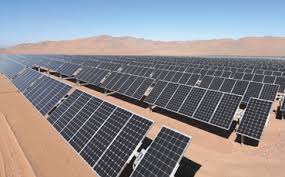Uttarakhand
- Young government doctors to be posted in dist hospitals in hills for 3 years.
- In a move aimed at ‘disciplining’ young government doctors and instilling in them a sense of duty towards patients, the Uttarakhand health department has decided to incorporate a new set of guidelines in the bonds signed by MBBS students.
- As part of the new bond conditions, young government doctors will be posted for at least three years in big district hospitals instead of the earlier practice of assigning them to small units like primary health centres in the hills. The need for this was felt, said sources in the health department, because many of the young doctors who were left unsupervised in the small centres were often found missing and not on duty when patients needed them.
- The young doctors will still be posted in locations in hills but will serve in bigger facilities instead of smaller centres
- The scheme of posting young doctors in remote centres in the hills was started from 2004 onwards after it was observed that there was great reluctance on part of serving doctors to go to remote locations. Under the scheme, students in government medical colleges of the state who are admitted under a reduced fee quota of Rs 50,000 per annum are required to sign a bond which requires them to serve in remote areas for 3 years after completion of their MBBS degree.
- In U’khand, compulsory retirement for govt officials above 50 if they fail performance test.
- In a significant decision, the Uttarakhand government has decided to introduce compulsory retirement for all officials above the age of 50 if they fail an annual screening test meant to check their performance. According to the government order issued on Thursday, a screening committee would meet every year to ascertain the performance of employees above 50. The ones who fail to meet the minimum criteria will be offered the voluntary retirement scheme (VRS). The government has also directed all departments to conduct the screening committee meetings for the last financial year (2016-17) with immediate effect.
- One of the biggest advantages of this order is that it will create employment opportunities for the youth of Uttarakhand. It is a positive step which will ensure that nonperformers are removed from the system. Employees will be more professional and will be under pressure to perform.”
INTERNATIONAL
- 2017 G20 Hamburg summit.

- The 2017 G20 Hamburg summitwas the twelfth meeting of the Group of Twenty (G20), which was held on 7–8 July 2017, at Hamburg Messe, in the city of Hamburg, Germany
AGREED
- To support free trade and open markets
- Countries can use “legitimate trade defense instruments” to protect their companies if trade partners are taking advantage of them.
- To fight terrorism by, among other things, pushing internet providers to detect and remove extremist content.
- To make a renewed push to reduce excess steel production capacity — primarily in China.
COULDN’T AGREE
- To unanimously support the Paris agreement on climate change
- To pursue United Nationssanctions such as asset freezes and travel bans against criminals smuggling people from Africa and the Middle Eastto Europe.
· SBI in Nepal launches digital village initiative.
- The State Bank of India has launched a digital village initiative in Nepal by installing a cash recycling centre.
- The digital village initiative has been launched in Jarisingpouwa in Shankarapur Rural Municipality, 25 km east from Kathmandu.
- The bank has also distributed 430 debit cards to the people of the locality, which is considered remote area due to the hill side location though it is not very far from Kathmandu city.
- Solar street lights were also installed in the area. The SBI in Nepal also celebrated its 25 years of establishment on July 7
National
- Sikkim row: China issues safety advisory for its citizens in India
- China has issued a safety advisory for its citizens staying in or travelling to India, in the backdrop of the ongoing standoff between the troops of the countries near the Sikkim sector.

- The advisory has asked Chinese citizens to pay attention to the security situation in India as well as to personal security.
- Border troops from China and India have been locked in the standoff in the Doklam area near the Bhutan tri-junction for the past three weeks after a Chinese Army’s construction party attempted to build a road.
· Govt to introduce new product pricing rules that bar sales over MRP.
- From January 1, 2018, the price of a packaged goods would no longer depend on where you bought it – be it a local kirana store, a mall, a five-star hotel or an airport. The Consumer Affairs ministry has amended the rules that govern packaged commodities to this effect.

- As per the amended Legal Metrology rules for packaged commodities that will come into effect from the next calendar year, the Centre has clarified that the retail sale price shall be the maximum retail price (MRP) inclusive of all taxes, with the provision to round off the price to the nearest rupee or 50 paise.
- The new norms also require sellers to enhance the size of letters and numerals for making declarations about the packaged goods, such as their “Best before date, month and year” to indicate their shelf life, for making it easier for consumers.
- Interestingly, for e-commerce marketplaces, declaring the month and year in which a commodity is manufactured or packed is not mandatory and if they fulfill certain conditions, they will not be held liable for whether the declarations were correct or incorrect. er for consumers to read vital information.
· India emerging as front-runner in fight against climate change: World Bank.
- India is emerging as a front runner in the global fight against climate change, the World Bank has said, noting that the solar power is gradually displacing coal as an energy source in the Country.

- With nearly 300 days of sunshine every year, India has among the best conditions in the world to capture and use solar energy.
- Indian government is setting ambitious targets that include 160 gigawatts (GW) of wind and solar by 2022, the World Bank said that not only will this help hundreds of million people light their homes it will also enable children to study at night, provide families with refrigerators to preserve their food or TVs to entertain themselves.